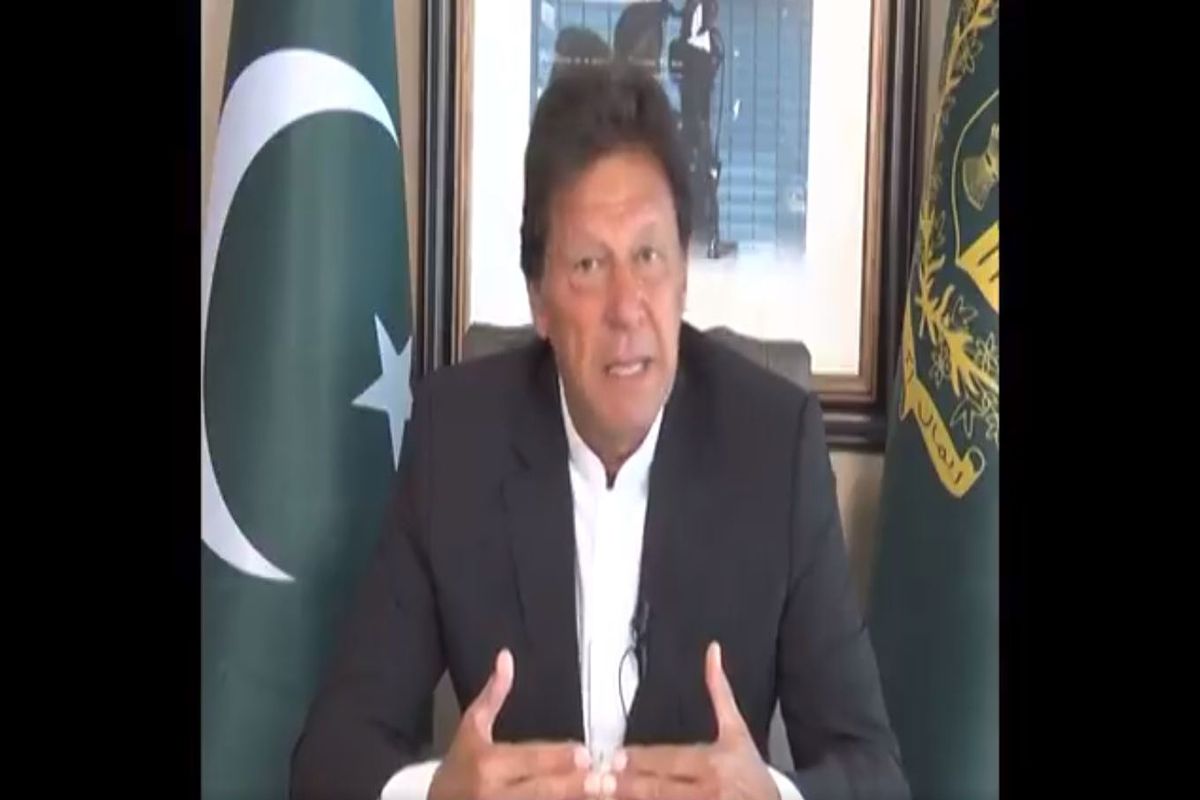Pakistan Prime Minister Imran Khan on Friday mooted launching of joint projects among the China-backed Belt and Road Initiative (BRI) member countries to promote tourism, combat climate change, corruption and poverty.
The multi-billion dollar China-Pakistan Economic Corridor (CPEC) is entering the next phase after substantial progress, Khan said while speaking at the 2nd Belt and Road Forum (BRF) here.
Advertisement
China is holding the BRF, which provides a platform to countries participating in the BRI, from April 25 to 27 here.
The BRI is a multi-billion-dollar initiative launched by Chinese President Xi Jinping when he came to power in 2013. It aims to link Southeast Asia, Central Asia, the Gulf region, Africa and Europe with a network of land and sea routes.
The forum is being attended by 36 heads of states and governments besides officials from 150 countries and international organisations.
Prime Minister Khan said the BRI, which raised concerns of a debt trap, offered a model of collaboration, partnership, connectivity and shared prosperity.
India and the US skipped the BRF. India has protested over the USD 60 billion CPEC which is being laid through the Pakistan-occupied Kashmir. CPEC is officially regarded as a flagship project of China’s trillion dollar BRI.
The US has termed the BRI as promoting predatory financing leading to heavy debt among smaller countries.
Khan’s government itself was reported to have planned to cut down some of the CPEC projects soon after it came to power owing to concerns related to debt burden.
Addressing the BRF, the Pakistan prime minister said that in a world of geopolitical uncertainty, of rising inequality, and barriers to trade, the BRI offers a model of collaboration, partnership, connectivity and shared prosperity.
Pakistan has been among one of the BRI’s earliest and most enthusiastic proponents, and CPEC is, one of the major components and one of its earliest manifestations and it has made substantial progress, he said.
Skirting India’s criticism of CPEC as well as its objections, Khan said CPEC has helped in Pakistan’s progress especially filling the critical infrastructure gaps.
He said that Pakistan and China are entering the next phase of CEPC together, with greater emphasis on social economic upliftment, poverty alleviation, agriculture cooperation and industrial development.
Both the countries are signing an expanded Pakistan China Free Trade Agreement, he said.
He also mooted cooperation among the countries signed up to BRI climate change cooperation.
In the last five years, Pakistan successfully planted five billion trees in Khyber-Pakhtunkhwa province, he said, adding that Pakistan has launched a nationwide project to plant 10 billion trees in the next five years.
He suggested that there should be some joint and ambitious projects of planting trees among the BRI countries to mitigate climate change.
He suggested the establishment of BRI tourism corridor to promote people-to-people contacts, inter-cultural understanding and most importantly to establish anti-corruption cooperation to combat the scourge of white-collar crime.
Khan has also mooted the creation of a poverty alleviation fund.
On April 19, Chinese Foreign Minister Wang Yi said that over 120 countries and international organisations, which have signed up for BRI, sent representatives to take part in the 2nd BRF.
Khan also thanked China and its leadership for the unwavering support to Pakistan.
The deep-rooted friendship, partnership and brotherhood with China remain strong, resilient and unbreakable, he added.











